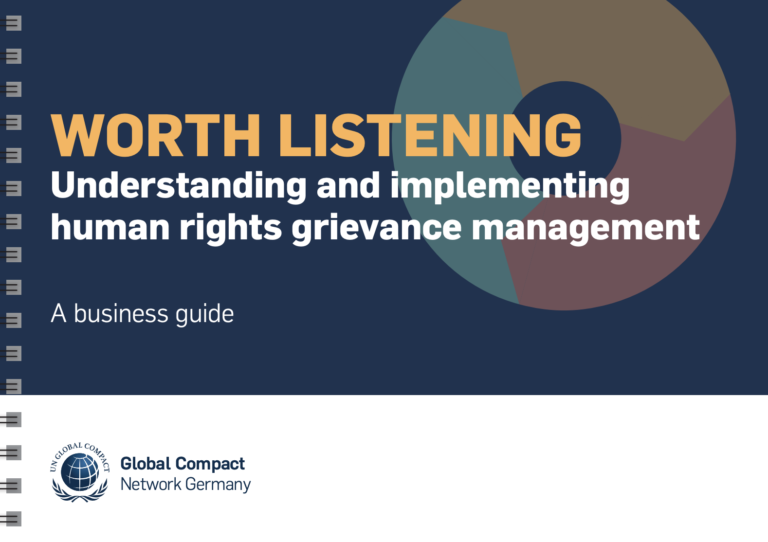Guiding Principles on Business and Human Rights
The UN Guiding Principles on Business and Human Rights are a set of guidelines for States and companies to prevent, address and remedy human rights abuses committed in business operations. child labour
This guide is intended to assist companies, including small and medium-sized enterprises (SMEs), in designing effective human rights grievance mechanisms. It provides practical advice and case studies, which show that a business is not expected to come up with a perfect, one-size-fits-all solution. Rather, effective grievance management is about providing multiple access points through which those who might be negatively affected by a company’s actions can get in touch. What exactly such an “ecosystem of grievance mechanisms” looks like will depend on the company’s business structure and risk profile.
This guide helps develop an approach to grievance management that is in line with the requirements of the UN Guiding Principles on Business and Human Rights (UNGPs).

The UN Guiding Principles on Business and Human Rights are a set of guidelines for States and companies to prevent, address and remedy human rights abuses committed in business operations. child labour
A new report from the Women and Foreign Policy program, launched this week, highlights the security implications of human trafficking and offers recommendations to prevent human trafficking and advance U.S. security interests. Human tra...Read More
On 15 December 2021, the United Nations University Centre for Policy Research project Delta 8.7 hosted a Country Policy Research Workshop. This fourth workshop focused on Ghana, bringing together policymakers from the Ministry of Gender, Children an...Read More
Large infrastructure and industrial Projects can have adverse impacts on people and on the environment. As financiers and advisors, we work in partnership with our clients to identify, assess and manage environmental and social risks and impacts in ...Read More
The OECD-FAO Guidance for Responsible Agricultural Supply Chains (the Guidance) has been developed to help enterprises observe existing standards for responsible business conduct along agricultural supply chains. These standards include the OEC...Read More